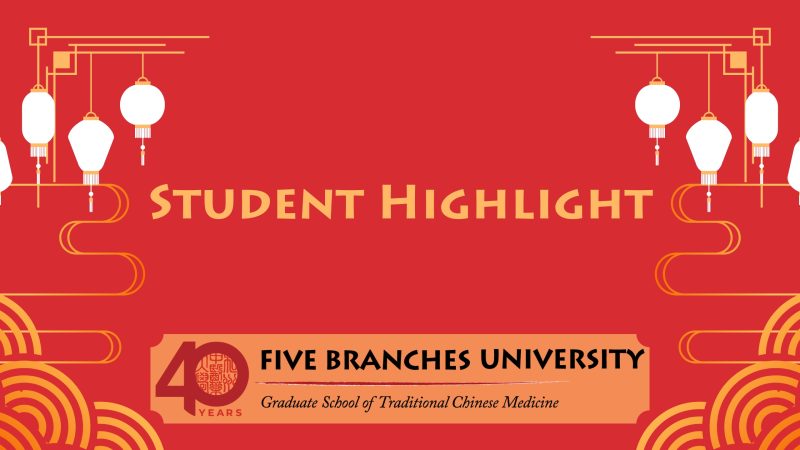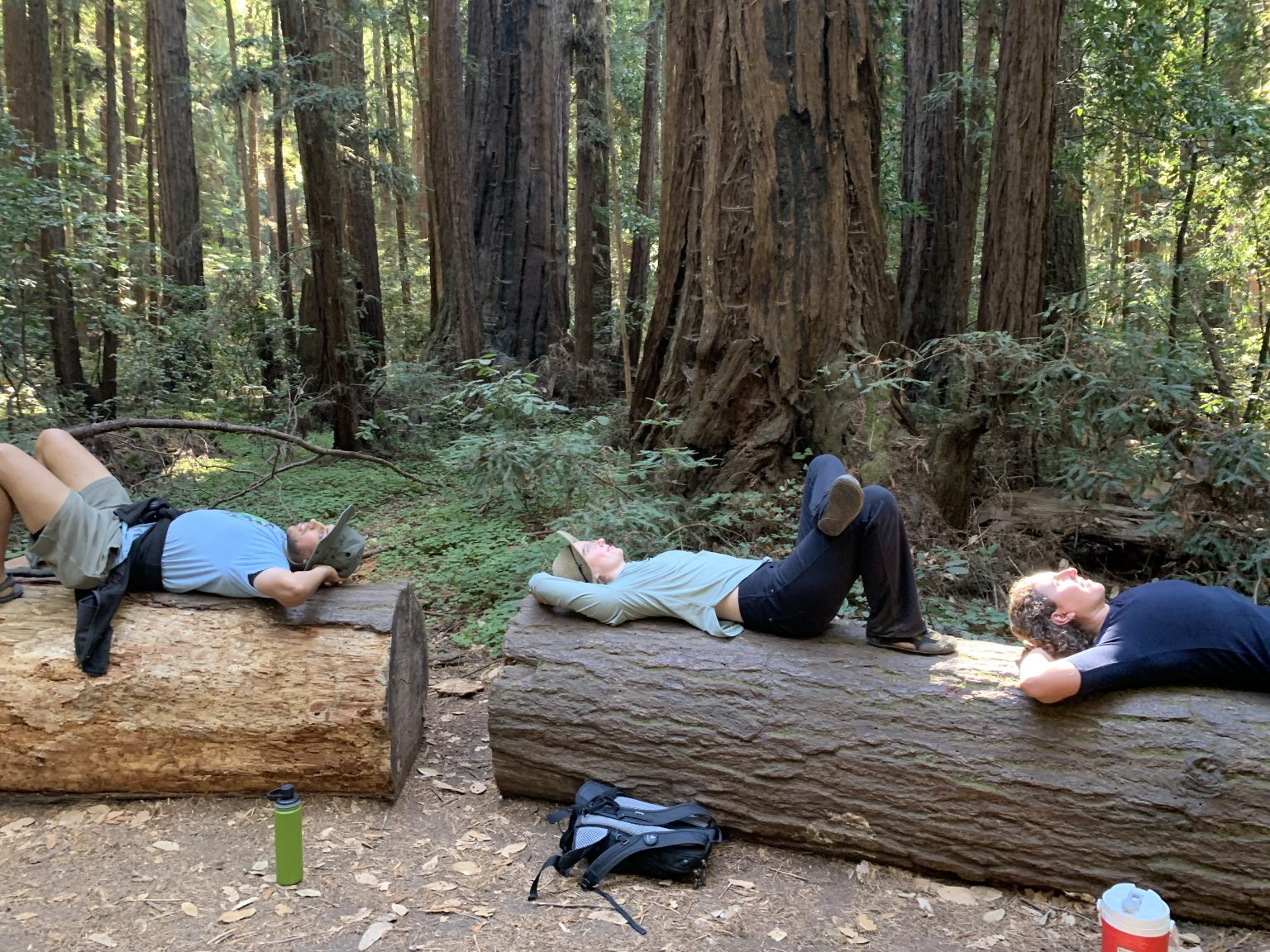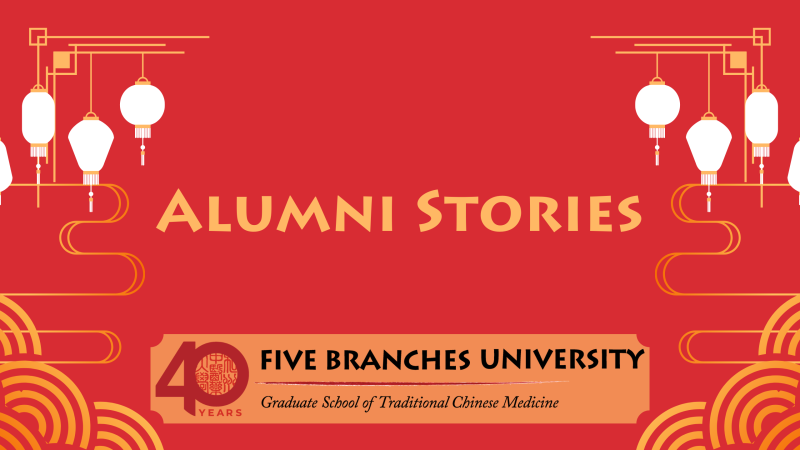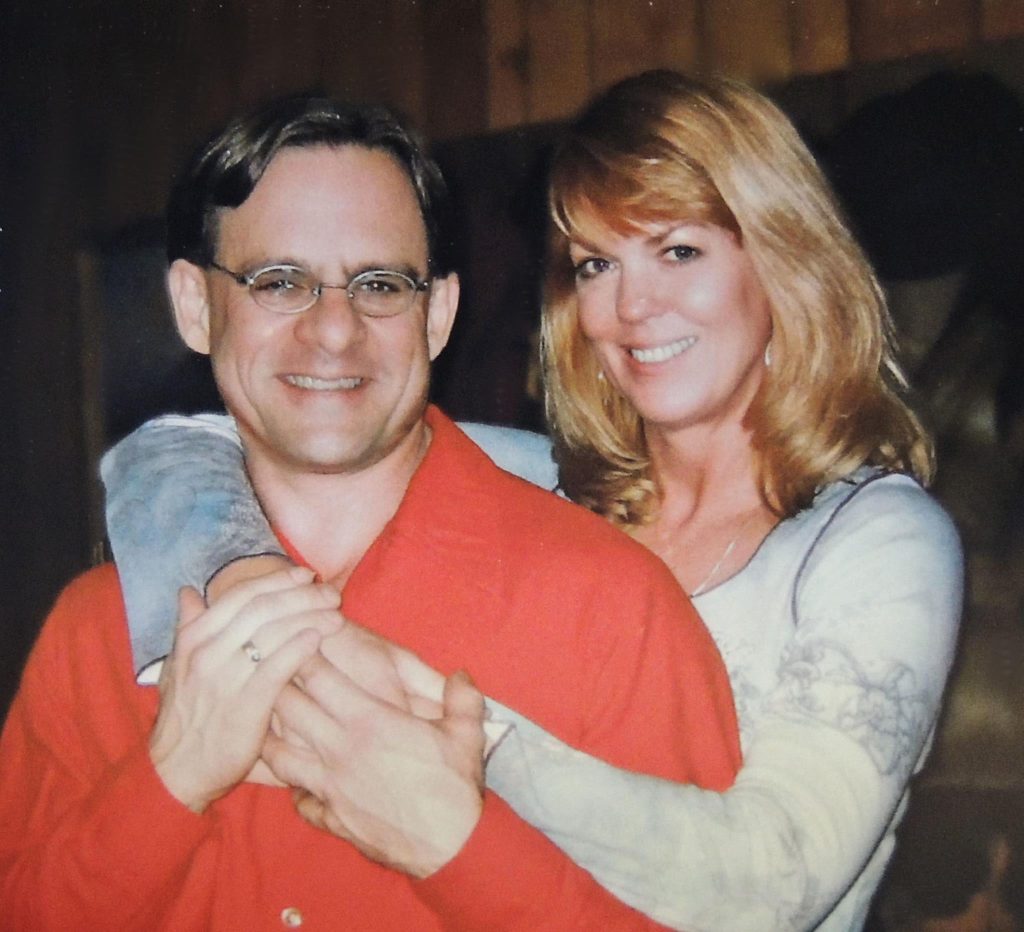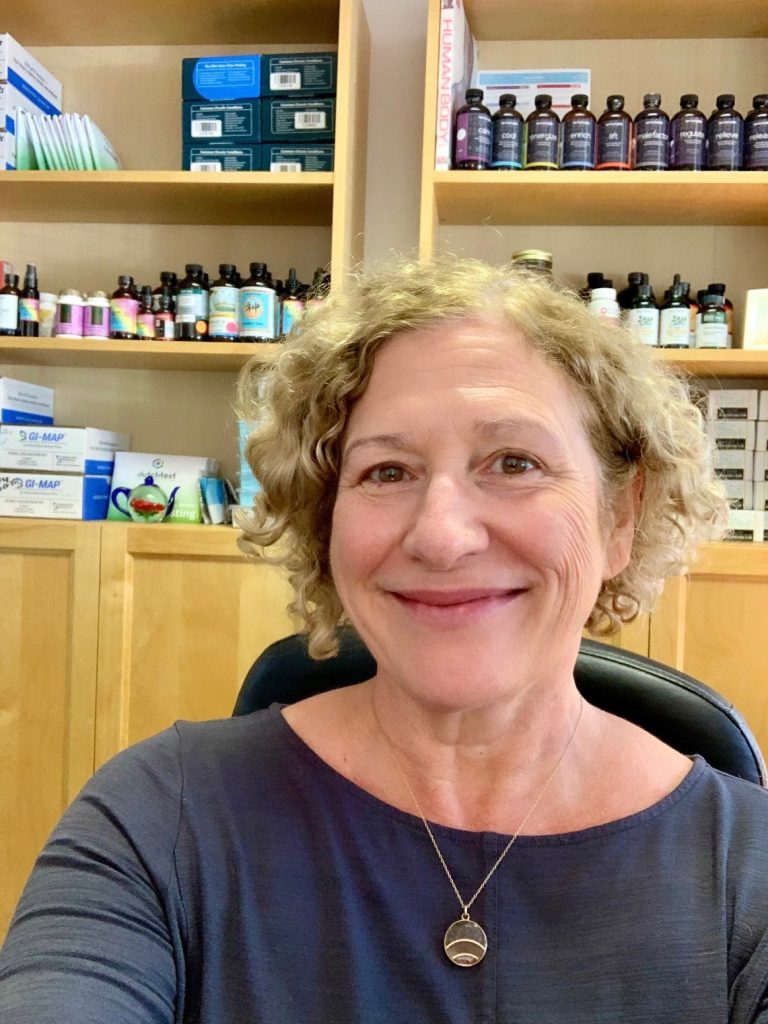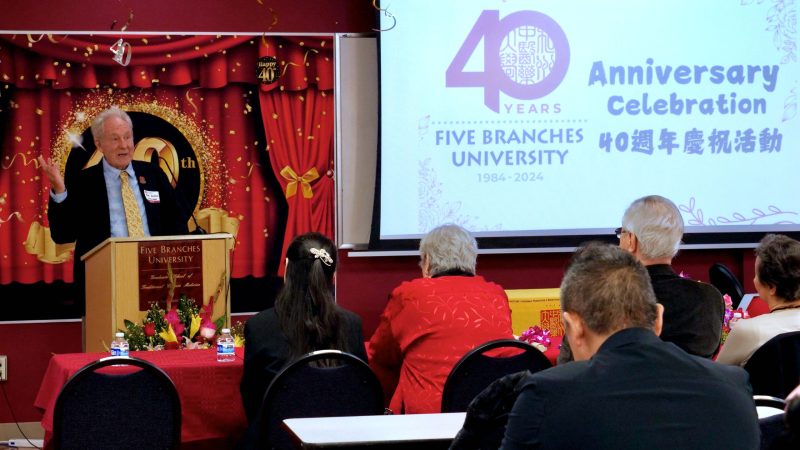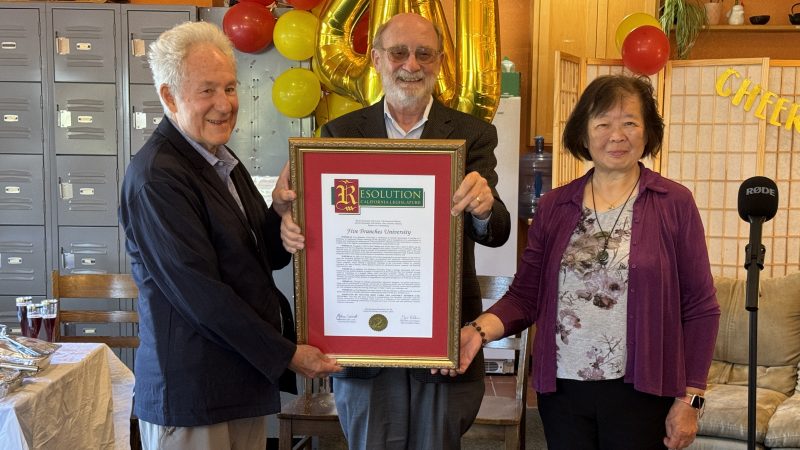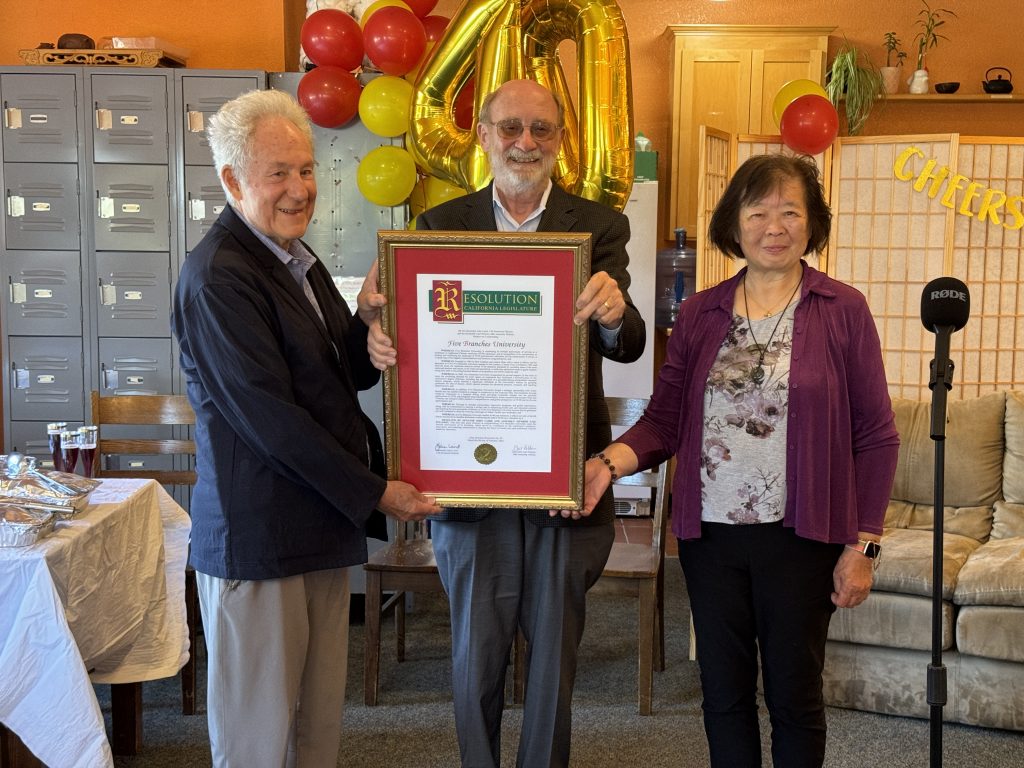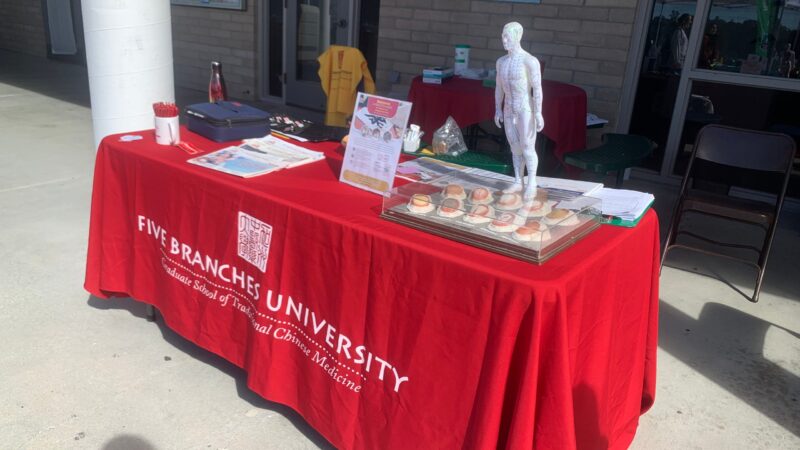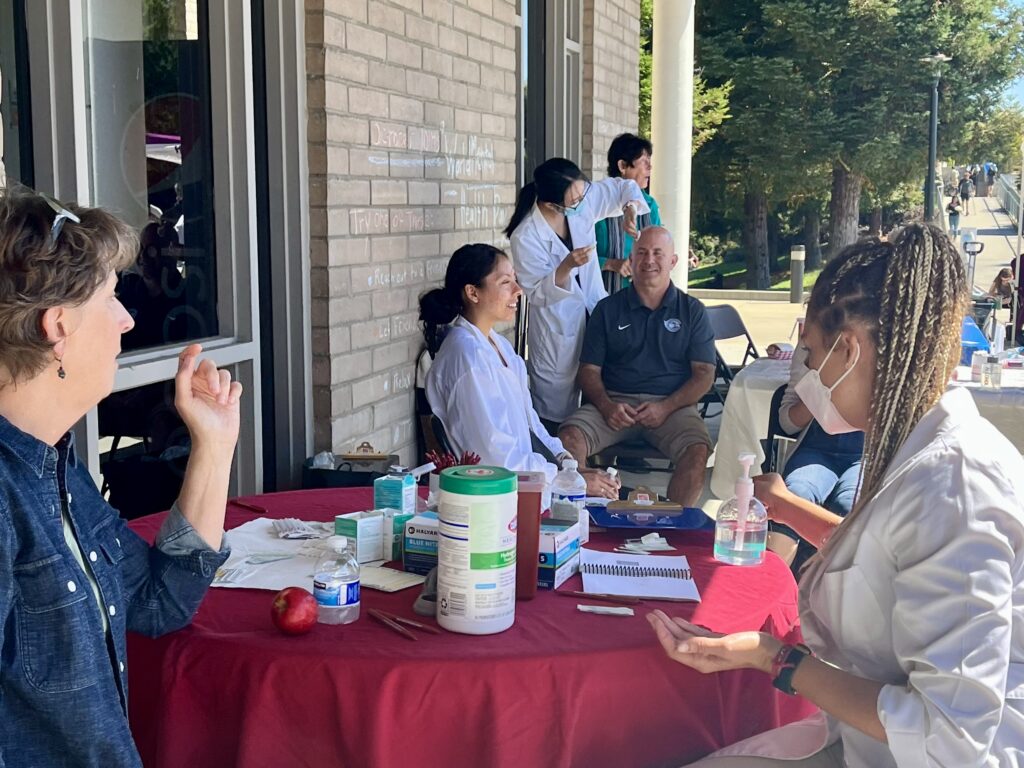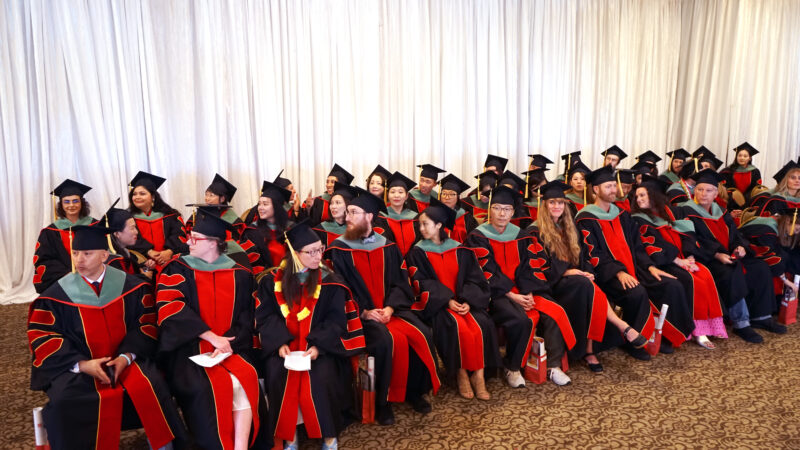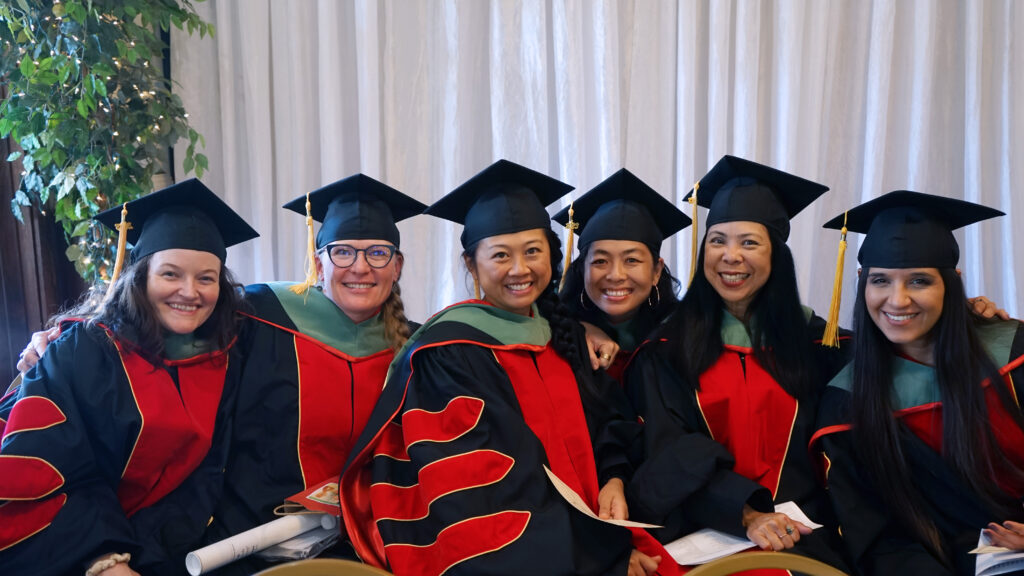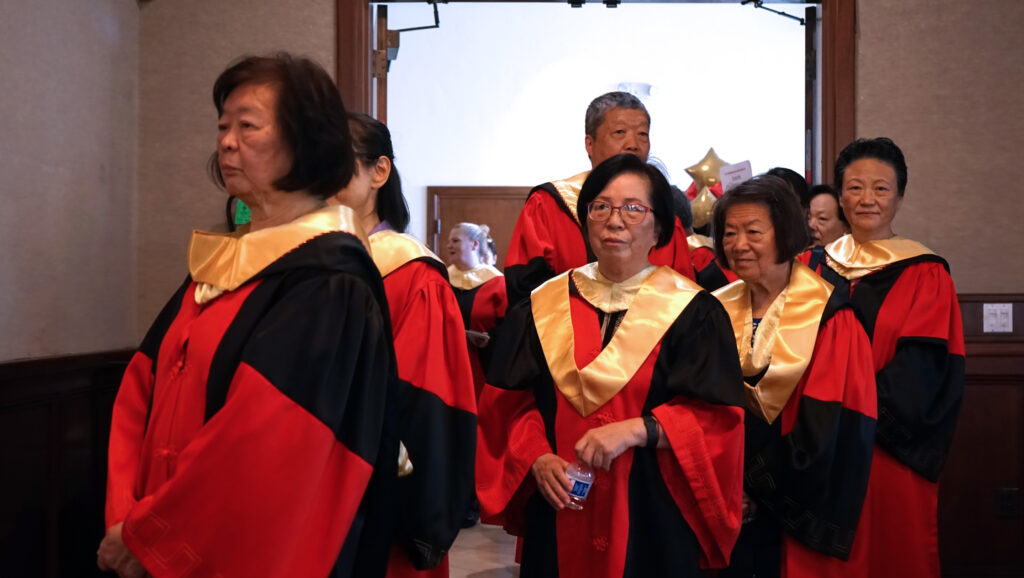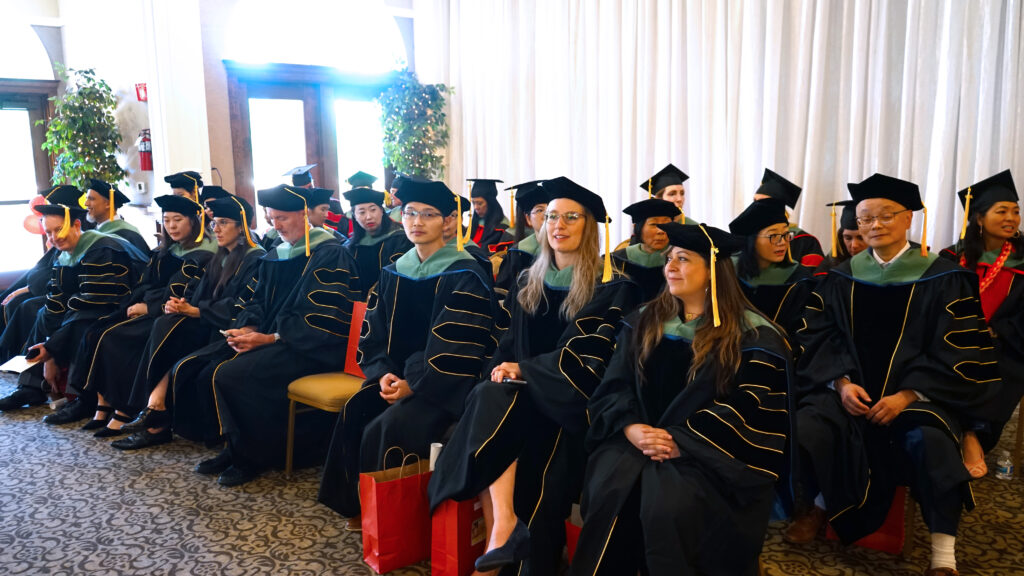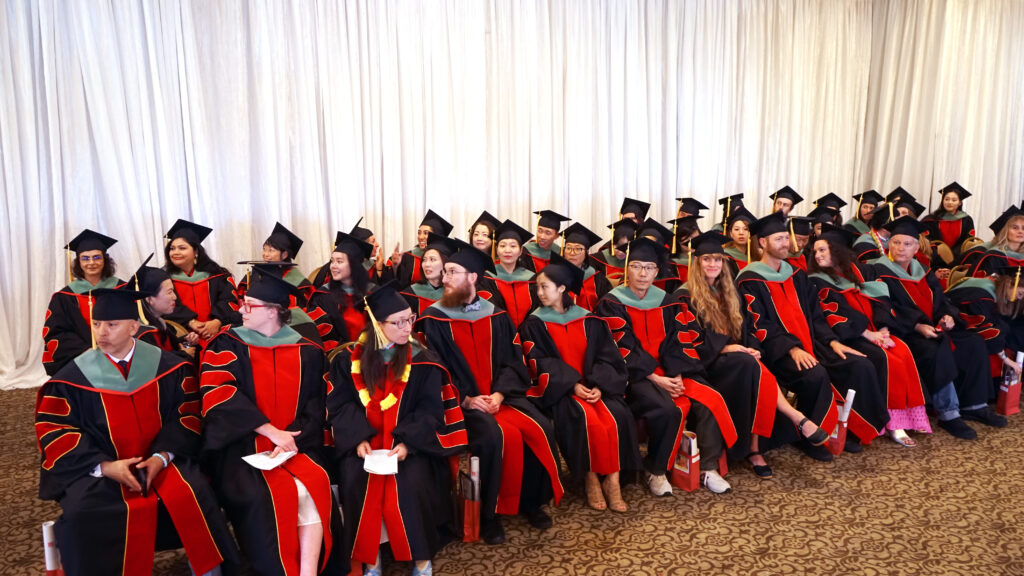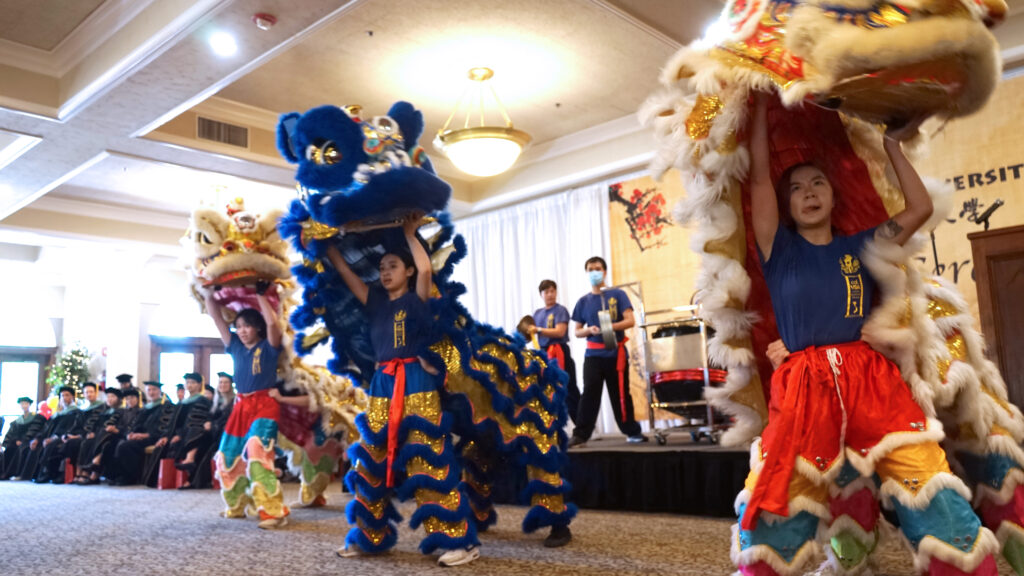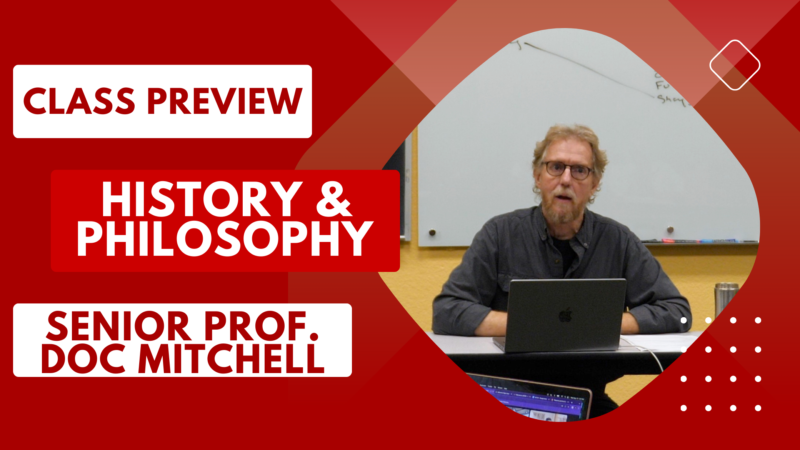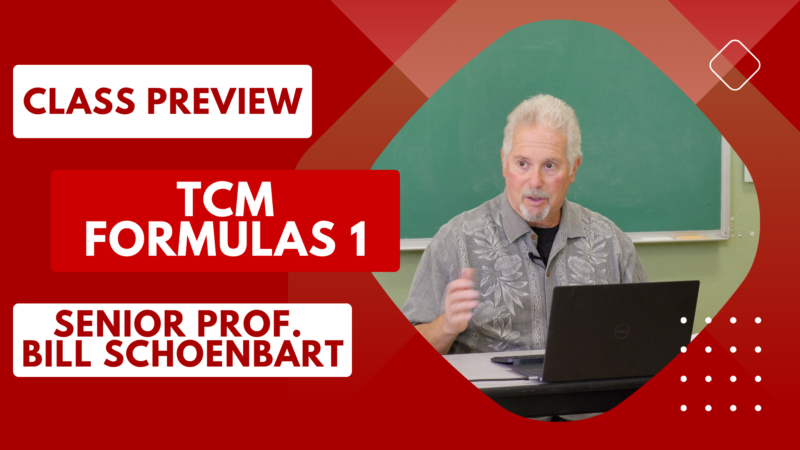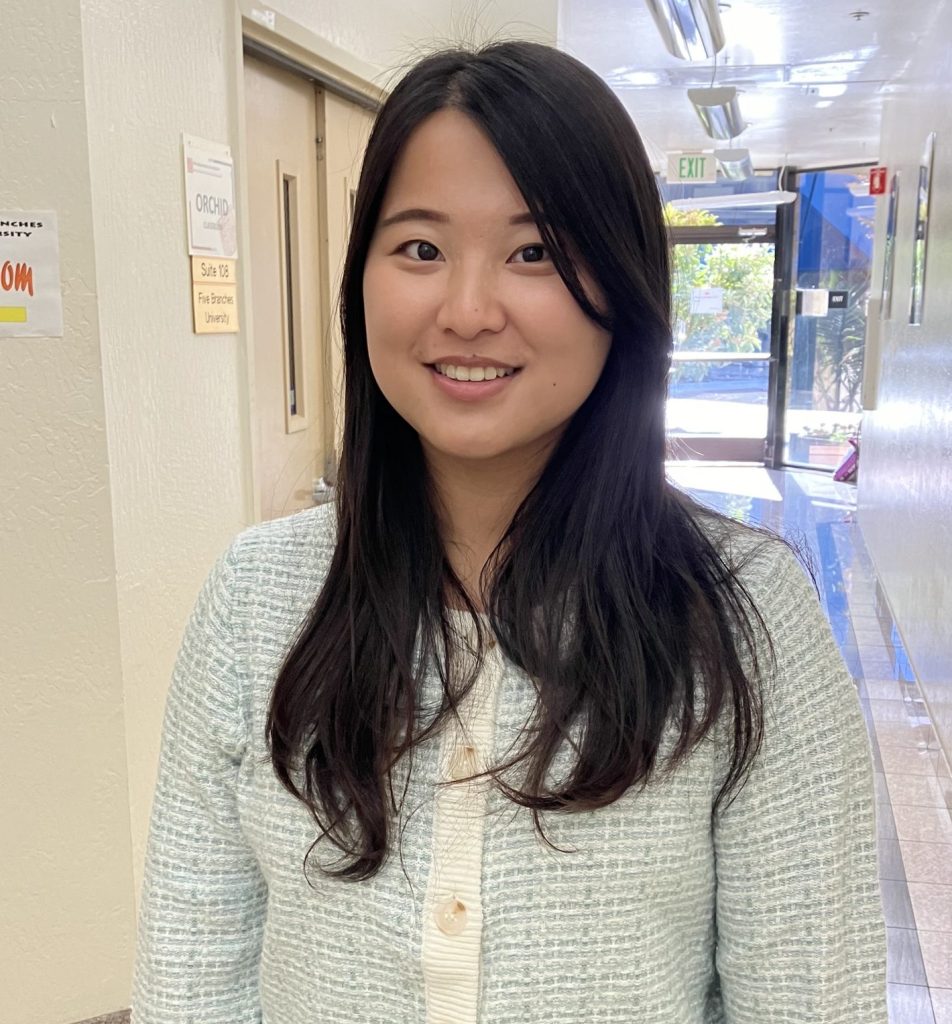
At Five Branches University, our students come from all walks of life, united by a shared passion for healing!
Take Yanguang Zhang and Ju Yin (Stacy) Shen, for example. Yanguang began his journey in business and economics but found his true calling in Chinese medicine through his lifelong practice of Qigong and Taiji and a deep interest in music therapy. This blend of influences sparked a transformative shift in his career, and now, as he approaches graduation, he’s ready to integrate these unique perspectives into his healing practice.
Stacy, who joined us this fall, brings a background in physical therapy. Her recovery from a basketball injury exposed her to the limitations of her field. The rapid and transformative results from acupuncture treatments opened her eyes to an alternative path.
The two crossed paths at our Open House, where Yanguang’s expertise and enthusiasm reinforced Stacy’s decision to embark on her own TCM journey.
Every student’s path is unique, but they all lead to Five Branches University—a place where diverse experiences and a passion for healing come together to create something extraordinary.
